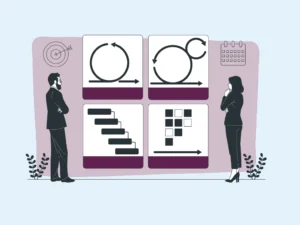Mental health records are generally protected by state and federal privacy laws. These laws vary from state to state, but they typically provide that mental health records can only be released with the patient’s consent. In some cases, such as in an emergency, mental health records may be released without the patient’s consent.
State and Federal Privacy Laws
Some states have laws that specifically address access to mental health records. For example, the Illinois Mental Health and Developmental Disabilities Code provides that patients have a right to access their mental health records, subject to certain limitations. The Code also requires mental health providers to give patients a copy of their mental health records upon request.
Other states have laws that generally allow patients to access their medical records, including mental health records. For example, the California Health and Safety Code provides that patients have a right to access their medical records, subject to certain limitations.
On a federal level, patients have a right to access their mental health records under the Health Insurance Portability and Accountability Act of 1996 (HIPAA). HIPAA applies to covered entities, which include health care providers, health plans, and health care clearinghouses. If you are a covered entity, you must comply with HIPAA laws. Under HIPAA, patients have the right to request and receive copies of their medical records, including mental health records. They also have the right to request that their records be corrected if they believe there are errors.
Individual Protected Health Information (PHI)
Patients have a right to inspect and obtain a copy of their individual protected health information (PHI), with a few exceptions. PHI includes, but is not limited to, information created or received by a health care provider that relates to the past, present, or future physical or mental health or condition of an individual, including payment of services, that identifies the patient; or information that can be used to identify the patient.
Accessing Mental Health Records
In most cases, patients can access their records by contacting their healthcare provider directly. However, patients may also need to submit a written request. The process for doing so will vary depending on the healthcare provider. Be sure to specify that you are requesting your mental health records as opposed to your medical records. You should also specify the format in which you would like to receive your records, such as by mail, email, or in person.
Some healthcare providers may charge a fee for copies of medical records, while others may provide them free of charge. Patients should contact their healthcare provider to find out about any fees that may apply. It is important to note that not all healthcare providers are required to comply with HIPAA. For example, HIPAA does not apply to life insurance companies, employers, or schools.
Timeframe for Accessing Records
While patients generally have the right to access their medical records within 30 days, they may have to wait longer for their mental health records. And, in some cases, they may not be able to access their mental health records at all. Mental health records may be withheld if releasing them would cause the patient or someone else harm. In addition, if the patient is a minor, their parents or guardians may have to give permission for the patient to access their records.
Limitations & Denial of Accessing Mental Health Records
Mental health providers can also deny patients’ requests to access their records, e.g., for previously mentioned reasons. In such cases, the mental health provider must give the patient a written explanation for the denial. If the patient believes their rights have been violated, they can file a complaint with the U.S. Department of Health and Human Services Office for Civil Rights.
Reviewed by: Brittainy Lindsey
Disclaimer
All examples of mental health documentation are fictional and for informational purposes only.
Why other mental health professionals love Mentalyc

“By the end of the day, usually by the end of the session, I have my documentation done. I have a thorough, comprehensive note … It’s just saving me hours every week.”
CDCII

“Having Mentalyc take away some of the work from me has allowed me to be more present when I’m in session with clients … it took a lot of pressure off.”
LPC

“It’s so quick and easy to do notes now … I used to stay late two hours to finish my notes. Now it’s a breeze.”
Licensed Professional Counselor

“It takes me less than 5 minutes to complete notes … it’s a huge time saver, a huge stress reliever.”
Licensed Marriage and Family Therapist







